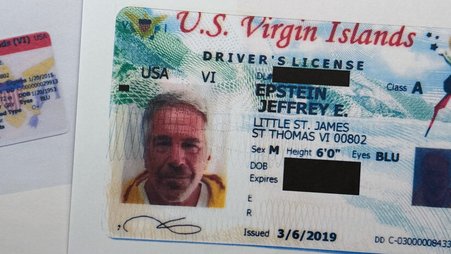If fewer newspapers exist to request public records, does the government become less transparent? That’s the question at the heart of “Dark Deserts,” a new research paper by David Cuillier of the Freedom of Information Project at the Brechner Center for Advancement of the First Amendment and law student Brett Posner-Ferdman.
Cuillier, who’s taught more than 10,000 journalists, students, and citizens how to wrest public records from government agencies, told us about what he and Posner-Ferdman found and what it means for the public’s right to know.
Let’s start with the big finding of “Dark Deserts”: States with fewer local papers and weaker press associations are more likely to break public records laws. Why does that matter for everyday people?
This is incredibly important for all of us because we are reaching the transparency tipping point — where we will lose any effective ability to see what our governments are up to.
We know from research that public record laws directly lead to less corruption, cleaner drinking water, and safer restaurants. According to Stanford economist James Hamilton’s research, for every dollar spent on public records journalism, society benefits $287 in saved lives and more efficient government. Freedom of information ensures concrete benefits for all of us.
Yet, we are losing it very quickly. According to the Department of Justice’s own statistics, if you asked for a record in 2011, you would get it about 38% of the time. Now it’s down to 12%. We see the same downward trends in the states. What happens when it gets to 0%?
The death of transparency will affect all of us in the pocketbook, in the quality of government services we receive, and in the loss of liberties we hold sacred as Americans.
David CuillierThe death of transparency will affect all of us in the pocketbook, in the quality of government services we receive, and in the loss of liberties we hold sacred as Americans.
Surprisingly, you found that having more digital-only media outlets doesn’t result in better public records request compliance. Why do you think that is, and what advice would you give to digital outlets trying to hold government accountable?
It is difficult to know for sure. For one, there aren’t as many data points to effectively measure their effects as well as we would like. For example, the Institute for Nonprofit News membership stands at about 500 so far and there are 3,143 counties in the country. A strong, local, independent digital outlet might have an effect on local compliance with public record laws, but there probably aren’t enough to have an impact on state agencies.
Also, while many are doing great work, I suspect they have less influence at a statewide level than newspapers. A lot of digital-only outlets don’t have the funds to sue for public records. Also, my sense is that government officials don’t take digital-only media outlets as seriously, and that politicians are essentially blowing them off and not considering them “real” journalism. That is too bad, because many are doing better journalism than legacy media.
Digital-only outlets will need to double down on public records. And support organizations like Freedom of the Press Foundation, Reporters Committee for Freedom of the Press, MuckRock, state FOI coalitions, and others can help.
Beyond subscribing to their community’s newspaper or supporting funding for journalism, what can people who care about press freedom and transparency do to encourage state governments to take their public record laws seriously?
Of course, write to your local city council, legislator, governor, and congressional representatives. They listen if enough people speak up. But everyone says that, right? And how many people actually act?
The solutions will take much more work than strongly worded letters. It’s time for other institutions to fill the gap. Nonprofits with an agenda are probably our last hope — American Oversight, Heritage Foundation, Judicial Watch, ACLU, League of Women Voters, etc. A new citizen-driven nonprofit in Jacksonville, “Nassau County DOGE,” has been pushing for public records. Environmental groups and those seeking police reform and rights for transgender Americans are pushing for records. Whatever your passion is, join an organization that will fight for your right to know.
David CuillierThe solutions will take much more work than strongly worded letters. It’s time for other institutions to fill the gap.
Then, we need strong coordinating bodies, such as state freedom of information coalitions, to help direct these energies toward real legislative reform and litigation. One thing I’ve noticed is that all it takes is one or two passionate people in a state to make a huge difference in freedom of information. It really is doable!
What states have the strongest public records law, and what sets them apart? If you had the power to rewrite public records laws, what’s the one thing you’d add or fix right away?
No state is perfect. But most of the studies indicate that the states with the best compliance overall with public record laws tend to be Washington, Idaho, Connecticut, and some others. The most effective changes to public records laws rely on four things.
First, we need mandatory attorney fee-shifting in every state, where agencies are required to cover the attorney fees of people who sue for public records and prevail. In the third of the states that have this, there are attorneys happy to sue on behalf of journalists and others, with the hope they will get paid.
Second, strong financial penalties for noncompliance are critically important. Washington is probably the most transparent state overall, because if an agency breaks the law, is sued, and loses, it can be forced to pay up to $100 per record per day that it dinged the requester around. That can add up to hundreds of thousands of dollars.
Third, elimination of search and redaction fees, which are abused terribly. There are some countries where no fees are charged at all, and it works very well. In reality, fees collect very little of the actual cost of administering public record laws — less than 1%-3% according to most studies. Yet, they are wielded by agencies to make people go away, particularly journalists.
Lastly, and probably most importantly, we need alternative enforcement mechanisms in addition to court. Not everyone can afford to hire an attorney and sue. We need independent information commissions in every state to enforce the law and punish bad agencies, as they have in Connecticut, Pennsylvania, and Ohio, and in more than 51 nations across the planet.
You’re also a member of the federal Freedom of Information Act Advisory Committee. What’s something you’d fix in the federal FOIA?
So many fixes, so little time.
The FOIA Advisory Committee, since its inception in 2014, has provided 67 recommendations to improve the law and process, yet the most substantive suggestions have mostly been ignored. Amendments every decade or so tweak the law but are insufficient in keeping up with increasing secrecy.
I’ve noticed that in Washington, D.C., there tends to be a culture of exceptionalism, that we are the king of democracy in the world and have the best law on the books. In reality, FOIA’s strength on paper is rated in the bottom half of the 140 nations that have public record laws — 78th, to be exact. That is embarrassing. So many improvements could be made if we swallow our pride and look to other countries for guidance.
David CuillierFOIA’s strength on paper is rated in the bottom half of the 140 nations that have public record laws — 78th, to be exact. That is embarrassing.
For example, we need an independent agency with the power to enforce the law on behalf of citizens, like we see in dozens of other countries. We need stiff penalties — even firing and jail time — for intentional noncompliance of FOIA, as they have in Ghana, Barbuda, and Finland. We need direct funding of FOIA offices by Congress to carry out the FOIA mission, particularly now as agencies are gutting staff. We need better technology to search for records and redact. We need FOIA to be applied to all branches of government, and to private corporations that conduct taxpayer-funded business on behalf of the government, as in South Africa, Armenia, and Colombia.
A lot of people consider these ideas extreme, yet they are common in other countries. We can do better.





